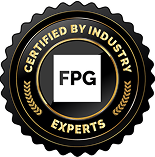Objections are a natural part of the sales process, especially in the B2C home improvement sector. As sales professionals, we often encounter customers with concerns about cost, indecision, and skepticism about product quality or company reputation. Understanding how to handle these objections effectively is crucial for closing deals and improving conversion rates. Drawing from Jason Forrest‘s teachings, this article provides actionable strategies to overcome common objections and transform them into opportunities.
1. Addressing Cost Concerns
Cost is one of the most common objections in home improvement sales. Prospects often worry about the affordability and value of the investment.
Understanding the Concern: When a customer raises a cost objection, it’s essential to delve deeper into their concern. Are they worried about the upfront expense, or do they question the long-term value? Addressing this requires a thorough understanding of their financial situation and value perception.
Strategy: Reframe the Investment: Reframe the cost as a long-term investment rather than an immediate expense. Highlight the potential savings, increased home value, and enhanced quality of life. For instance, explain how energy-efficient windows can lower utility bills or how a renovated kitchen can increase the home’s resale value. By focusing on the long-term benefits, you shift the conversation from cost to value.

2. Managing Indecision
Indecision can paralyze a sale. Customers may hesitate due to fear of making the wrong choice or feeling overwhelmed by options.
Understanding the Concern: Indecision often stems from a lack of information or confidence. Customers may need reassurance that they are making the right choice and that your product or service meets their needs.
Strategy: Simplify the Decision: Simplify the decision-making process by providing clear, concise information. Use testimonials and case studies to show how others have benefited from your solutions. Encourage customers to visualize the end result and the positive impact on their lives. For example, say, “Imagine hosting your next family gathering in this beautifully renovated living space.” This technique helps them see the tangible benefits and reduces their fear of making the wrong decision.
3. Responding to Skepticism About Product Quality
Skepticism about product quality can derail a sale if not addressed promptly and effectively.
Understanding the Concern: Customers may have doubts about the durability, functionality, or overall quality of your products. These doubts can be fueled by past negative experiences or negative reviews they have encountered.
Strategy: Build Credibility and Trust: To overcome this objection, build credibility through evidence and third-party endorsements. Share certifications, warranties, and quality assurances that back your claims. Use customer testimonials and reviews to demonstrate real-world satisfaction. Highlighting industry awards or recognitions can also bolster credibility. For instance, you could say, “Our windows have received the highest rating from the National Fenestration Rating Council for energy efficiency and durability.”
4. Handling Timing Concerns
Timing concerns often arise when customers feel uncertain about the current market conditions or their personal readiness for a home improvement project.
Understanding the Concern: Customers may worry that they are not choosing the right time to invest due to market volatility or personal circumstances.
Strategy: Create a Sense of Urgency: Create urgency by emphasizing the benefits of acting now versus waiting. Discuss current promotions, limited-time offers, or upcoming price increases. Highlight the potential consequences of delaying, such as missing out on cost savings or further deterioration of their home. For example, “By acting now, you can take advantage of our seasonal discount and ensure your home is ready for the winter months.”

Watch Now | 3 New Strategies To Separate Yourself From The Competition In Your Customer’s Eyes
5. Countering Company Reputation Concerns
Concerns about your company’s reputation can prevent a customer from moving forward, especially if they have heard negative feedback or had a poor experience in the past.
Understanding the Concern: Customers want to feel confident that they are dealing with a reputable and trustworthy company. Negative reviews or past experiences can cast doubt on your reliability and professionalism.
Strategy: Showcase Customer Satisfaction and Longevity: Highlight your company’s track record, customer satisfaction rates, and years of experience in the industry. Use case studies, customer testimonials, and references to demonstrate your commitment to quality and service. Address any past issues transparently and show how you have resolved them. For example, “We’ve been in the home improvement business for over 20 years and have a 95% customer satisfaction rate. Here’s a recent case study showing how we resolved a challenging project successfully.”
Handling objections in B2C home improvement sales is about understanding the customer’s concerns and addressing them with confidence and clarity. By reframing cost concerns, simplifying decisions, building credibility, creating urgency, and showcasing your company’s reputation, you can turn objections into opportunities and close more deals.
Transform Your Sales Approach
Our specialized sales training programs are designed to prepare your team to excel in any industry. Reach out to us today to empower your sales professionals and achieve your business goals with industry-leading training.
Ready to revolutionize your sales team?
Elevate your recruitment, training, and leadership with our expert guidance. Say goodbye to stagnant sales and hello to unprecedented success! Book a Meeting today and take the first step towards dominating your market!











